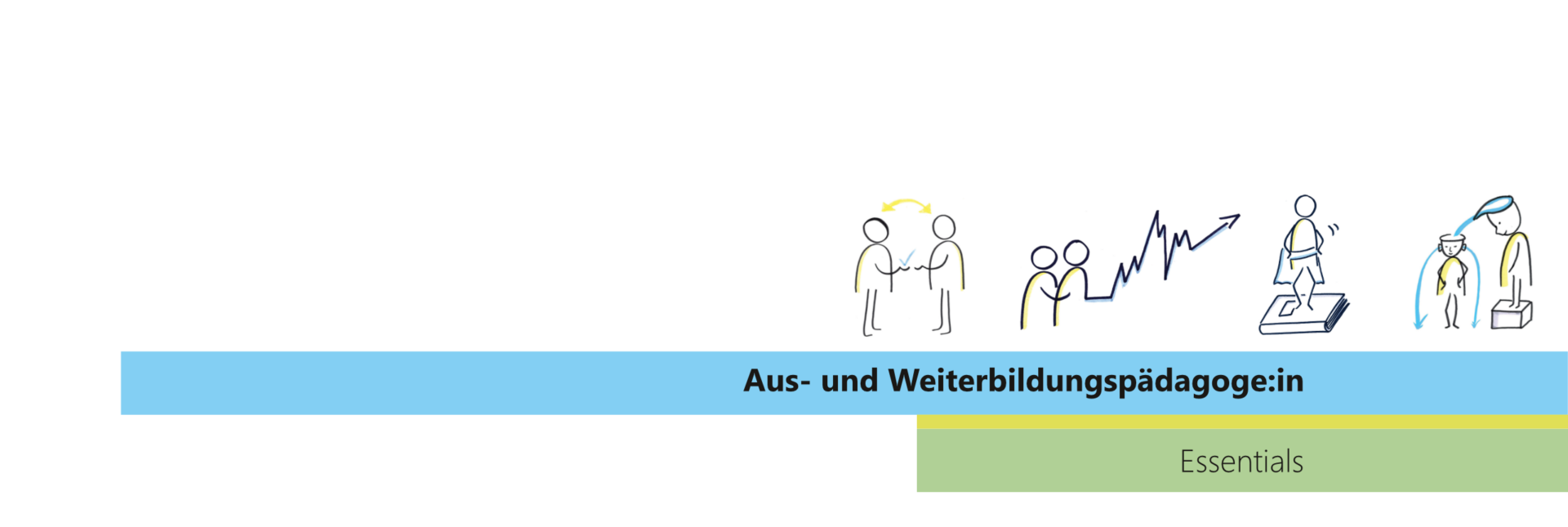Willkommen bei der GAB München
Arbeit, Beruf und Lernen
Wir sind für Sie der richtige Partner, wenn Sie eine kompetente Begleitung für Gestaltungsprozesse suchen. Wir finden gemeinsam mit Ihnen originelle und entwicklungsförderliche Lösungen für Fragen, die sich aus den modernen Anforderungen in der Arbeitswelt ergeben.
Unsere Kompetenzen
WorkflowLearning – die GAB News 2023
Wie kann es gelingen, Lernen für Mitarbeitende praxisnäher und agiler zu gestalten und ihre Eigenverantwortung und Selbstorganisation für das Lernen zu stärken? Mit dieser Frage beschäftigt sich ganz praktisch der diesjährige Leitartikel unserer GAB-News und gibt dabei Einblick in unsere aktuelle Entwicklungsarbeit in Kooperation mit der Bundesagentur für Arbeit.
Auch in den anderen Artikeln der diesjährigen News liefern wir Ihnen wieder Berichte und Notizen aus der GAB Werkstatt: Die Entwicklung eines Kompetenzmodells für Ausbilder:innen der Zukunft, die Auseinandersetzung mit der Frage, was der Mensch immer besser können wird als jede KI oder die die Leitbildarbeit mit zwei sozialen Einrichtungen und die agile Weiterbildung von Trainierenden bei der Landeshauptstadt München. Schauen Sie gerne in unsere News rein – es gibt wieder mal viel zu Entdecken!


Expedition ins Neuland – die GAB News 2022
Wie lassen sich Veränderungsprozesse und organisationales Lernen wirksam und nachhaltig gestalten? Dieser Frage geht der Leitartikel der aktuellen GAB-News nach und gibt dabei Einblick in ganz unterschiedliche Projekte, in denen die GAB München Unternehmen und Organisationen unterstützt, neue und innovative Wege zu gehen. Weitere Artikel berichten von ganz unterschiedlichen Projekten, in denen wir im letzten Jahr eingebunden waren: Von der Weiterentwicklung der Ausbildung bei der Bundesagentur für Arbeit, über Qualifizierungsprojekte für Meister:innen an berufsbildenden Waldorfschulen, einer ganzen Reihe von Evaluationsprojekten bis hin zur Entwicklung von Fortbildungsangeboten für Solo-Selbständige oder den Einsatz von künstlerischen Methoden in unterschiedlichen Zusammenhängen. Schauen Sie gerne in unsere News rein – es gibt wieder mal viel zu Entdecken!
Impulse fürs Tun: unser Newsletter
Wir, die GAB München suchen nach passenden Lernwegen und finden oft kleine Dinge, die helfen. Deshalb finden Sie in jedem Newsletter
- eine Frage
- einen Nano-Tipp zur sofortigen Umsetzung in Ihrer Praxis
- einen vertiefenden Beitrag.
…Eben Lernen auf den Punkt gebracht.


Impulse fürs Tun: unser Newsletter
Wir, die GAB München suchen nach passenden Lernwegen und finden oft kleine Dinge, die helfen. Deshalb finden Sie in jedem Newsletter
- eine Frage
- einen Nano-Tipp zur sofortigen Umsetzung in Ihrer Praxis
- einen vertiefenden Beitrag zum Thema Eben lernen auf den Punkt gebracht.
Die GAB-München – Wer wir sind
Wir, die GAB München, sind ein Beratungs- und Forschungsinstitut in den Bereichen berufliche Bildung und Organisationales Lernen. Seit unserer Gründung entwickeln wir innovative Ansätze und praxistaugliche Lösungen für Arbeit, Organisation, Beruf und Lernen. Dazu arbeiten Wissenschaftlerinnen und Wissenschaftler und Beraterinnen und Berater aus unterschiedlichen Disziplinen und mit unterschiedlichen fachlichen Ausrichtungen eng zusammen.













